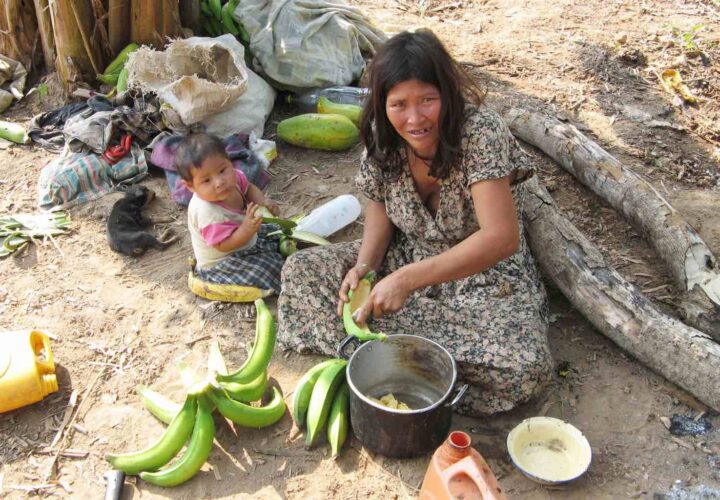New research suggests that the Tsimane people, an indigenous group living in the Bolivian Amazon rainforest, experience slower brain shrinkage than Western populations. The key may lie in their active lifestyle and superior heart health.
In villages dotted across the Amazon rainforest in the Bolivian lowlands, roughly 16,000 Tsimane people subsist largely by farming, fishing, hunting and foraging. The indigenous group’s diet is rich in fibers with few saturated fats and preservatives. They walk about 7.5 miles daily, staying active for most of the day. By studying the Tsimane people’s way of living, researchers have gleaned a host of insights into the human life cycle, and most recently, the keys to slowing aging of the brain.
As part of the Tsimane Health and Life History Project, researchers have found that the Tsimane people may experience far less brain shrinkage with age, which can be a sign of dementia, compared to Westerners. According to the team, this finding could potentially be attributed to their lifestyle and low odds of developing disorders of the heart and blood vessels.
Mounting evidence shows that risk factors of cardiovascular disease like high blood pressure, diabetes and high cholesterol — health conditions widespread among people in industrialized nations — are all intricately linked with brain health and dementia risk. So, the recent study serves as a reminder of the importance in adopting a heart-healthy lifestyle, such as staying physically active and adapting a nutritious diet. As the adage goes, what’s good for the heart is good for the brain.
“The Tsimane have provided us with an amazing natural experiment on the potentially detrimental effects of modern lifestyles on our health,” Andrei Irimia, an author of the study and assistant professor of gerontology, neuroscience and biomedical engineering at the University of Southern California, said in a news release. “These findings suggest that brain atrophy may be slowed substantially by the same lifestyle factors associated with very low risk of heart disease.”
For the study, published in the Journal of Gerontology, Series A: Biological Sciences and Medical Sciences, Irimia and colleagues enrolled 746 Tsimane adults aged 40 to 94. The researchers provided transportation for the participants from their villages to Trinidad, Bolivia, the closest town with computer tomography (CT) scans for brain imaging.
Given that magnetic resonance imaging (MRI) scans are more sensitive in detecting brain atrophy, the researchers noted that this technology would have been the preferred method over CT scans, but transportation to an MRI scanning facility wasn’t feasible.
Nonetheless, the team validated their brain measurement methods, finding that both CT and MRI scans produced similar brain volume results. With the Tsimane people’s CT scans, the team calculated the participants’ brain volumes, examining the results in association with their age. Then, the researchers compared these findings with industrialized populations’ brain volume, which was derived from MRI scans of past research.
The team reported that the indigenous group experienced slower age-related decline in brain volume, or brain atrophy, compared to people in Germany, the United States and Netherlands.
This could be for any number of reasons. Lifestyle factors from diet and exercise to smoking are being investigated for their links to brain health. According to the researchers, the Tsimane people’s low risk for developing cardiovascular disease may help preserve brain health, despite their high inflammation levels (a known risk factor for brain atrophy) due to frequent infections and parasites.
The study builds on the team’s previous research in 2017, which shows rare cases of smoking and health conditions like high blood sugar, obesity and high blood pressure, all of which are risk factors of cardiovascular diseases, among the Tsimane people. What’s more, they actually have the lowest prevalence of coronary atherosclerosis, the main cause of heart attacks, in any population recorded to date. In other words, the Tsimane people have the healthiest hearts in the world, and now, the recent study suggests that they seem to have healthier brains in aging, too.
“This study demonstrates that the Tsimane stand out not only in terms of heart health but brain health as well,” Hillard Kaplan, a professor of health economics and anthropology at Chapman University, said of the new study in the news release.
Kaplan, an author of the 2017 study and the team’s recent research, added that the Western population’s sedentary lifestyle and diet packed with sugars and fats may accelerate age-related brain atrophy, increasing the risk of Alzheimer’s. But, he noted: “The Tsimane can serve as a baseline for healthy brain aging.”



